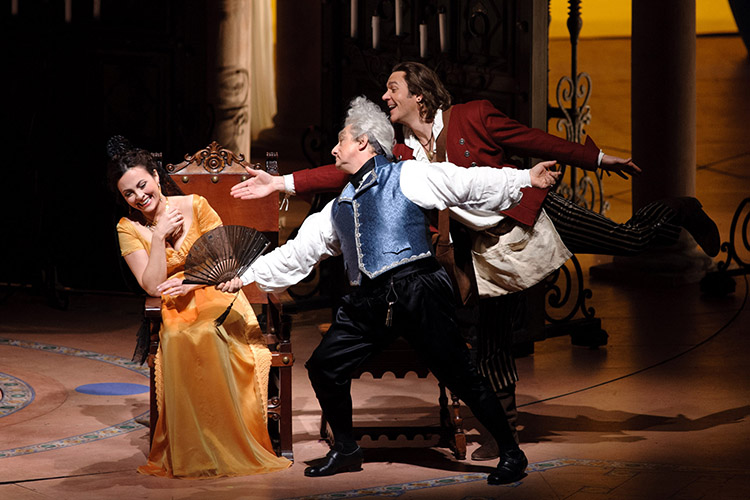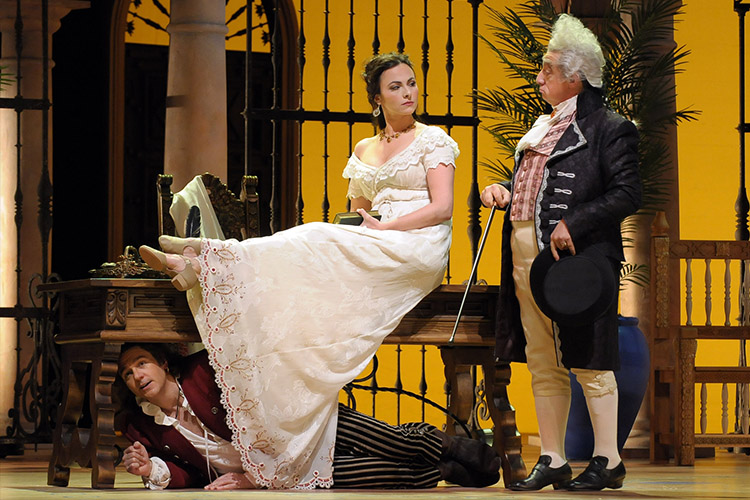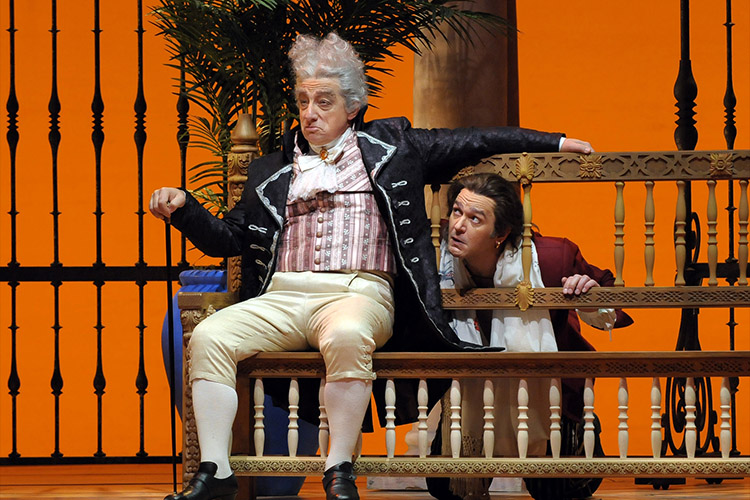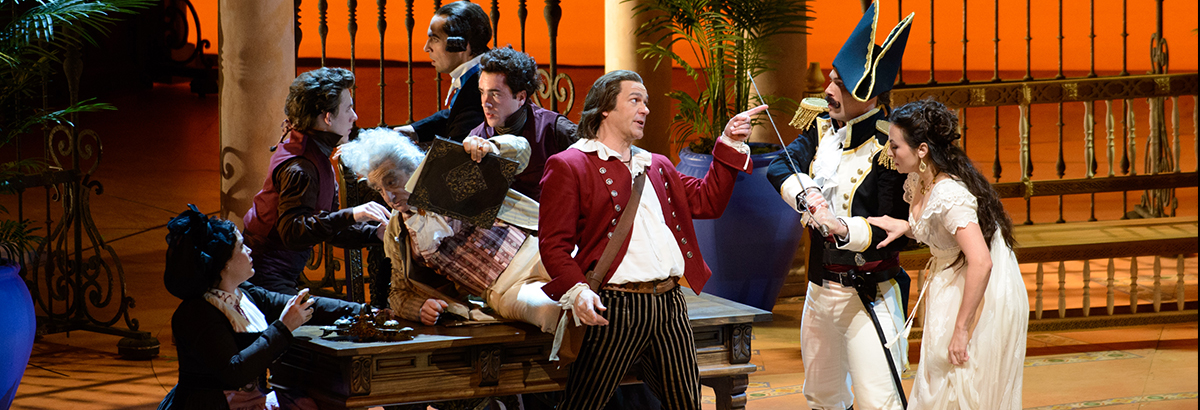August 22, 2019
From 1816 to 2019: Where We See THE BARBER OF SEVILLE in Pop Culture
What better way to start the opera season than with Rossini’s The Barber of Seville? Not only is it a classic comedy, but it also pops up time and time again in modern culture. That’s right – just because it premiered in 1816 doesn’t mean it won’t resonate with audiences in 2019! If you've been looking for the perfect show to introduce friends or even young people to opera, look no further.
The Barber of Seville follows the whirlwind romance between Count Almaviva and Rosina, who is set to marry the grumpy, old Bartolo, who is also her guardian (ick!). Figaro, the town barber and jack-of-all-trades, plays the ultimate “wingman” to the Count, helping to disguise the nobleman to prove that Rosina truly loves him for himself and not his money.
The forbidden love narrative has been around forever, but the Barber story adds empowering commentary on social equality, for which the original playwright, Pierre Augustin Caron de Beaumarchais, was roundly criticized in the 1770s, just before the French Revolution. The idea of Count Almaviva marrying beneath his title, plus the way in which Figaro, a low-status barber, treated aristocracy, were both seen as contemptuous toward nobility and quite radical for the times.
But Barber and Beaumarchais’ subsequent Figaro plays (The Marriage of Figaro and The Guilty Mother) set the tone for future love stories. Fictional romances between people of different social strata just keep happening — think of popular movies such as Titanic, The Notebook, and Pretty Woman, as well as stage-and-screen classics like My Fair Lady. Social equality remains a hot-button issue in 2019 and a part of a broader, ongoing societal conversation — and with that, Barber reasserts its relevance.

Lyric's 2013/14 Season production of The Barber of Seville
The themes of the opera aren’t the only things that show up in pop culture — the music pops up everywhere, thanks to its impressive riffs and catchy melodies. Having an influential cultural appropriator like Bugs Bunny helps, too! Many cartoons have hopped on board the popularity of the opera, producing episodes devoted to Figaro and presenting the opera’s most famous arias. In a Tom and Jerry episode, Jerry sings “Largo al factotum” (“Make way for the servant who does everything”) and in a Woody Woodpecker episode, Woody enters Figaro’s barbershop. Without a doubt the most famous cartoon inspired by the opera is the “Rabbit of Seville” episode of Warner Brothers’ Looney Tunes, where Bugs Bunny finds himself onstage for a performance of the opera and sings the famous “Figaro, Figaro, Figaro” refrain. He also gives Elmer Fudd a most memorable shave.

Lyric's 2013/14 Season production of The Barber of Seville
The popularity of Rossini’s music has even inspired certain modern music, television and movie producers. “Largo al facotum” has been remixed and sampled in a variety of mainstream and experimental music. Remixes can be found on SoundCloud, YouTube, and even on popular television shows such as Jersey Shore. In the opening scene of the popular Mrs. Doubtfire movie, Robin Williams is voicing an animated bird who is also singing Figaro’s aria.

Lyric's 2013/14 Season production of The Barber of Seville
Through it all, the original The Barber of Seville retains its charm and popularity, and its relatability. Whether it’s your first time or your twentieth, you’ll have a great time and leave the theater grinning ear to ear. This original Lyric production was created by a terrific team of Tony Award winners: director Rob Ashford; set designer Scott Pask, costume designer Catherine Zuber; and lighting designer Howard Harrison. Tara Faircloth is the revival director.
And what a cast! Adam Plachetka is rascally Figaro, Lawrence Brownlee is the ardent Count Almaviva, Marianna Crebassa is the spirited Rosina, Alessandro Corbelli is the pompous Doctor Bartolo, and Krzysztof Bączyk (Lyric debut) is the whiny music master Don Basilio. Full details into the cast of The Barber of Seville can be found in June’s Lyric Notes here.
The Barber of Seville is sure to kick off our 65th season in happy high style. As soon as Sir Andrew Davis begins the overture, you’ll be telling yourself, “Hey, I think I’ve heard this before!”

